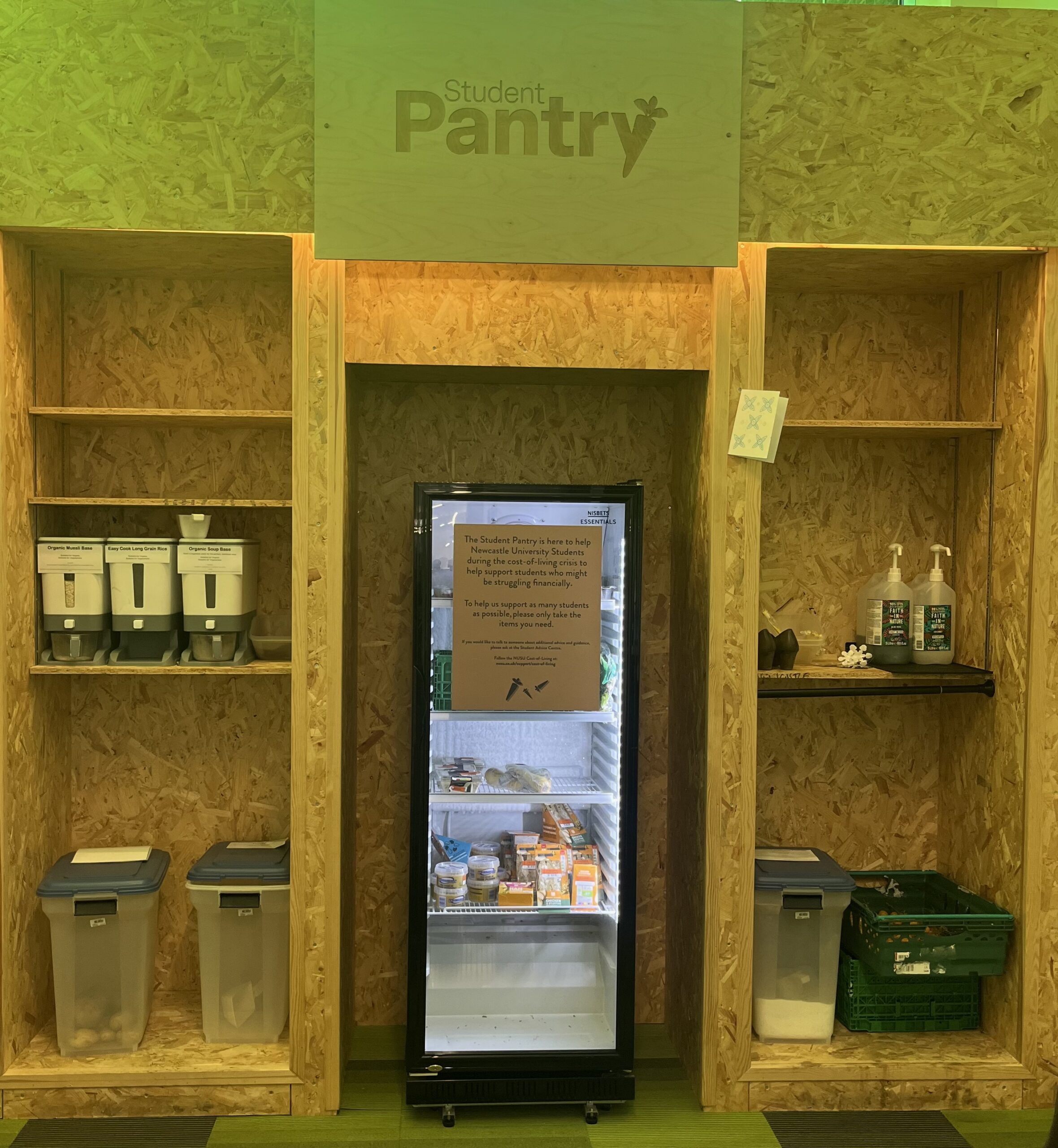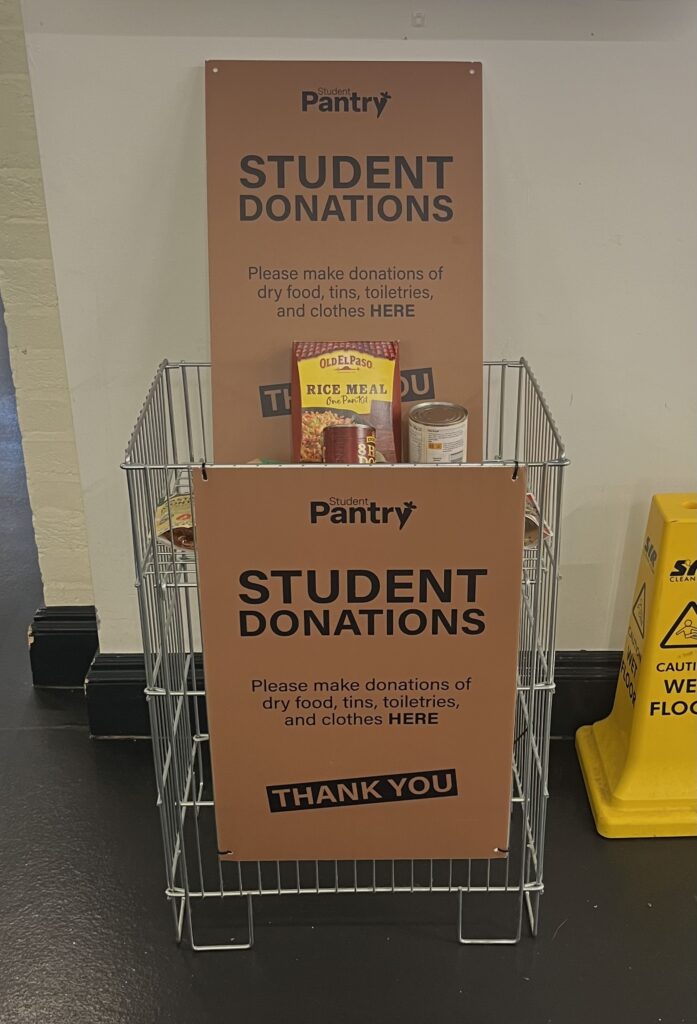
Newcastle University campus photographed by the reporter
Over the last two years the UK has been deeply affected by the crippling cost of living crisis, with inflation rates reaching a staggering 11.1% in October 2022. The high levels of inflation and low wage growth in the UK have fundamentally led to the crisis which has been amplified by short-term factors such as the ongoing war in Ukraine. Although inflation levels have begun to decrease and currently sit at 4.6% this doesn’t equate to prices dropping, with food and drink remaining 10.1% more expensive than a year ago. In response, the UK government has increased maintenance loans throughout the UK for 2023/2024, most notably in Northern Ireland as the maximum maintenance loan increased by 40%, however, in England, loans only increased by a pitiful 2.8%. As a result, university students in England are beginning to be left behind in the current economic climate.
In the Office for Students’ most recent survey carried out between the 23rd of January 2023 and the 15th of February 2023, 4,021 students were surveyed specifically on the cost of living. The survey revealed that almost half of the students had cut down on their food shopping in the last 6 months. This has left a third of student respondents hungry and highlights the distressing reality that students feel obliged to skip meals and consume smaller portion sizes to combat rising costs. Holly Ridyard, a second-year student at Newcastle University admitted “with a budget of £20 a week for my groceries, I inevitably have to sacrifice some of my meals”. This has become an emerging trend among students as revealed by The Sutton Trust poll in January 2023 with 28% of students also skipping meals.
As maintenance loans in England are now falling £7000 short of the cost of living crisis per year, many students are left with little to no disposable income. As a result, students are forced to cut back on non-essential spending including dining out and experiencing local cuisine around the university. Nathaniel Watson-Coe, a first-year student at Newcastle University stated, “I was excited to come to Newcastle and try all the eateries the city has to offer, however after paying my bills and rent I simply can’t afford to treat myself to a meal out with my friends”.
Listen: Interview with Nate Watson- Coe, a first year student at Newcastle University on the change of his eating habits since moving to university.
With the average student living expenses on the rise, students are beginning to alter their dietary choices to adapt to the economic changes. Many have resorted to consuming less nutritionally dense meals in the form of processed food and ready meals that provide a cheaper and more efficient meal. Charlotte Wood, a second-year student at Newcastle University stated that “my diet has drastically changed since moving to University, at home I love to cook and experiment with flavours in the kitchen, but the financial constraints of being a student have resulted in me eating unhealthier meals”.
As students struggle to afford their weekly food shop, many have turned to food banks for assistance. The 2023 Student Money Survey discovered that nearly 1 in 5 of students surveyed were using food banks, marking a disturbing increase from 1 in 10 in 2022. In response 76% of universities have begun to help students with food and drink costs.

The Newcastle Student Pantry located on Newcastle University’s campus photographed by the reporter.
The Newcastle Student Pantry located on Newcastle University’s campus photographed by the reporter.
Mack Marshall, who served as the Student Union’s Education Officer during the academic year of 2022 and 2023, played a key part in the initiation of the Newcastle Student Union’s Cost of Living Crisis Campaign. Mack stated “the campaign outlines our efforts to support students through the Student Union, our lobbying work within the university, and the national campaign we are supporting”. During his time as Education Officer, Mack assisted in the launch of the Newcastle Student Union’s very own food bank, The Newcastle Student Pantry. He explained “we worked in partnership with the University to support students during the cost of living crisis and secured University funding for the Student Pantry”. Situated in the onsite campus Cooperative, the pantry provides students with free food, hygiene products and clothing. The availability of essential items has been facilitated by donated products from the Cooperative, as well as contributions from students and staff members. Donations can be made through placing items in the donation basket located near the Student Pantry or through the Welfare and Support Hub.

The Newcastle Student Pantry donation basket photographed by the reporter
The Newcastle Student Pantry donation basket photographed by the reporter
During these trying times, it’s important for students to remain vigilant against the cost of living crisis. With little support from the government, it is essential that universities remain committed to the fight against student food poverty. Newcastle’s Student Union can provide students with support and advice during the cost of living crisis with access to the student advice centre open from Monday to Friday between 10:00 am to 16:00 pm. It is crucial that students can feel comfortable to openly discuss their financial challenges to prevent potential harm and avoid feelings of isolation.

